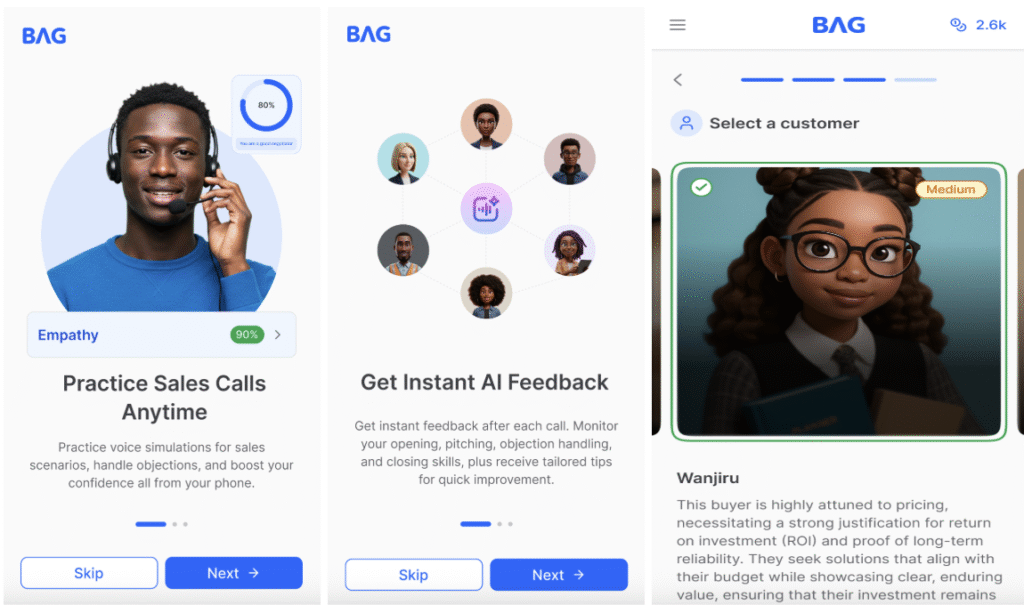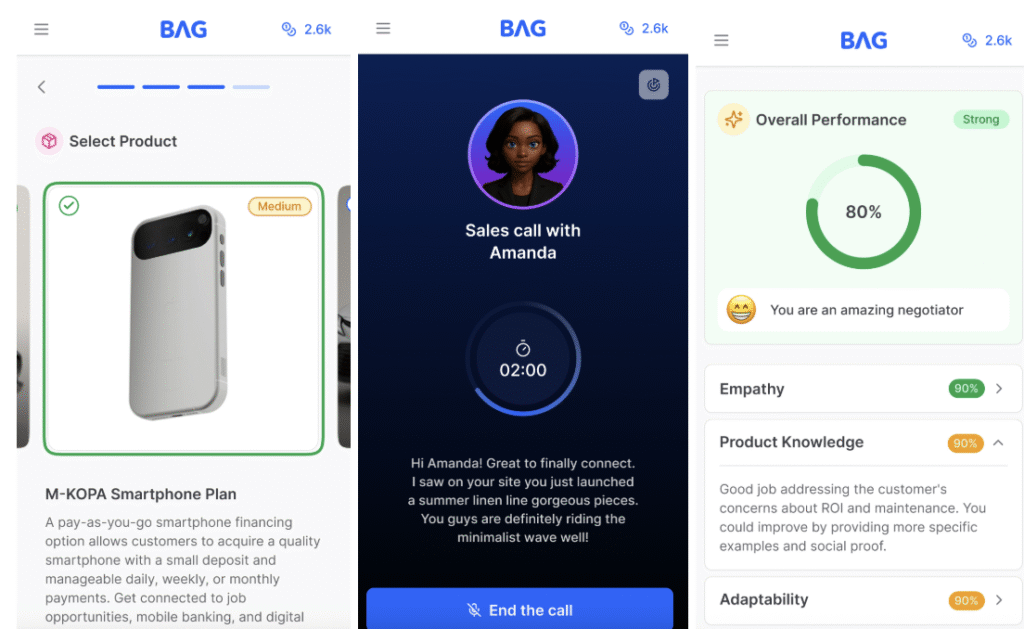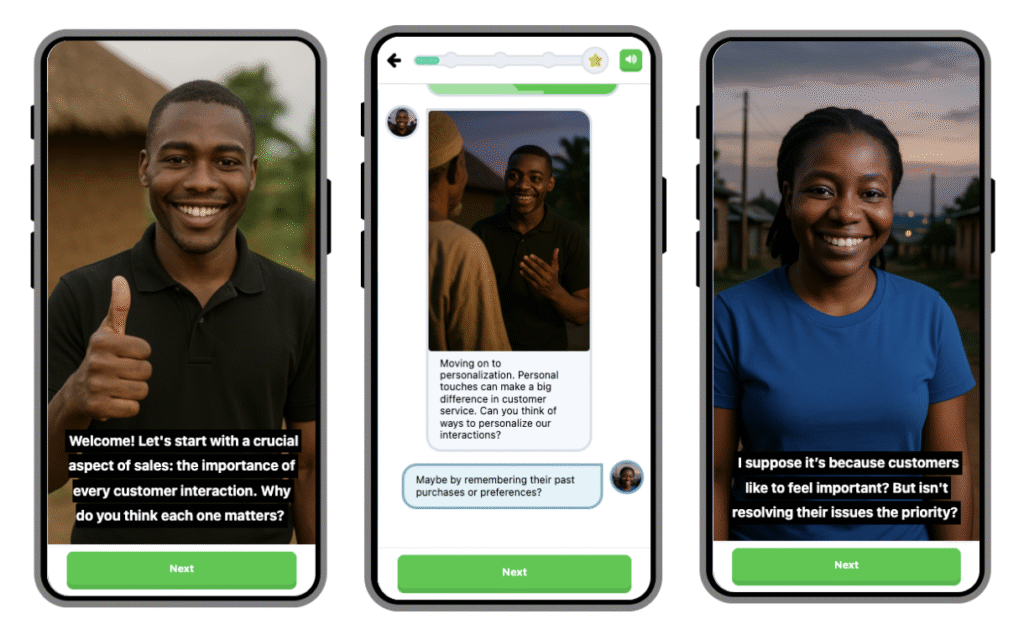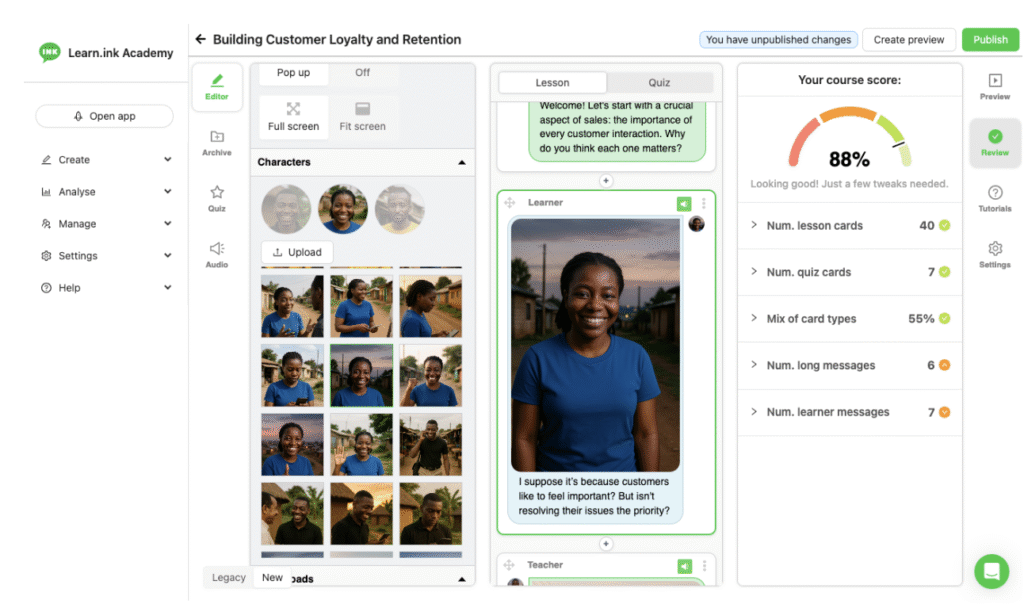At the Jobtech Alliance, we have historically been pretty skeptical of edtech in Africa. Not all edtech, just most edtech related to the world of work. That is now changing. And changing as fast as AI is changing. And that’s fast.
The sceptic
Our skepticism of tech-enabled skilling for the world of work came from three main reasons:
1. Limited situational learning. There’s convincing evidence that skilling related to the world of work is most effective when the learning can be immediately applied to real-life situations. This is why apprenticeships are so well-regarded, even though they are expensive and hard to scale. While training on soft skills through an app or SMS-based system is great, if there is no opportunity to deploy that learning quickly in a real-life situation, that learning will not fall on fertile ground. Learning best takes place in dynamic environments, where the user can experience and gain quick feedback.
2. Expensive and difficult to scale. While some traditional edtech platforms can be customised for the unique user, sector, or partner, this tends to be extremely resource-intensive. When I was COO at a Kenyan gigmatching platform for blue collar workers, I spent ages trying to work out how to integrate one SMS-based learning platform into our user experience. But I couldn’t figure out how to do this in a cost-effective way, particularly when we needed content to be customised not only for us as a business, but for each of our sectors and business verticals. The cost of customisation was just too high.
3. Impossible business models. Edtech platforms for the world of work are asking unemployed people to pay for a service with money they don’t have. This challenge is often magnified for women, who may have less disposable income and face greater societal and financial barriers to entering the workforce. Upskilling platforms for the employed are asking people to pay for services they don’t necessarily think they need. And the smaller segment of successful edtech platforms for staff upskilling paid for by corporates is not impacting the people that need skilling the most—those without jobs. Therefore, most edtech platforms for the world of work struggle to find business model viability; they are subsidised philanthropically and are inclined to die if and when that philanthropic money runs out.
The convert, the enthusiast
And despite all of this, we have recently started to become converts to edtech for the world of work. There is a strong opportunity for tech-enabled skilling to drastically improve both the skills of young Africans and the viability of jobtech platforms. Through engagements across the ecosystem, including investments in BAG and Learn.ink, we are now incredibly enthused about platform- and AI-enabled skilling. These engagements, which exhibit a structural difference from traditional edtech for the world of work, would not have been possible without AI.
BAG is a Rwandan job matching platform, which, with our support, is building an AI-powered sales coach that blends practice and feedback in a way few platforms have attempted. Users simply upload the product they need to sell, generate a customisable voice-based avatar of a target customer, and then immediately jump into a live cold-call simulation. Each call ends with precise guidance on what to improve, allowing sales agents to rehearse, refine, and build confidence before they ever speak to a real client. For us, the promise goes beyond training.

Sales is one of the largest entry points into formal work across Africa, yet it is also one of the hardest skills to master, particularly for young women who may lack the confidence or ‘traditional’ experience to break into male-dominated sales environments. By fusing this simulation with actionable feedback, BAG is strengthening its own placement model while creating a scalable solution for any company looking to upskill sales teams at speed. It’s a glimpse of how African platforms can use AI not to replace people, but to prepare them to succeed.

Learn.ink is tackling the skilling challenge for businesses that rely on large, distributed agent networks. Its B2B model is primarily geared towards companies with a large, distributed workforce that is very tough to train in person, or where the logistics are incredibly hard. These workforces often have low digital literacy and use devices that require a platform that is not data-heavy, directly addressing the gender digital divide—women often have access to less powerful devices and/or extensive data plans. The flexibility of mobile, on-demand training can be a game-changer for women, who tend to bear the lion’s share of caregiving and household responsibilities, complicating attendance at fixed, in-person training sessions.

With our support, the platform is focusing on leveraging AI to deliver customized, accessible, and practical training to these workforces. Learn.ink is collaborating with clients like M-KOPA (smartphones) and SunCulture (solar irrigation pumps) to train tens of thousands of their last-mile agents across the region. Because these companies are constantly training agents on something new—a new product bundle, a new phone, or new farming inputs—the need for training is continuous. These agents can use the mobile platform to receive engaging, gamified training on new products, sales techniques, and inventory management, all tailored to their specific roles and local market conditions.
BAG and Learn.ink tackle the three fundamental edtech problems outlined above head-on:
1. Real-time, platform-based and profile-matched learning. BAG is directly integrated into a platform that is delivering work, unlike historical edtech platforms for the world of work, which largely took place in a vacuum. Learning is real-time, platform-based, and profile-matched. BAG’s solution can equip users with skills for immediate deployment in a sales role.
Learn.ink provides a similar solution by integrating its training directly into the daily workflow of agents. The learning is designed to be immediately applicable, allowing a sales agent to learn about a new product in the morning—perhaps fitting a 10-minute module in between family duties—and apply that knowledge at a kiosk in the afternoon. For example, an M-KOPA agent can be trained on how to sell a new Huawei phone—learn its features, what to say, and how to interact with a client—and immediately put it into practice with customers. Providing this in a dynamic environment that interacts with the individual’s unique profile and circumstances (earnings, timeline) increases the learning impact exponentially.
2. Adaptable and scalable. BAG’s AI-enabled sales platform can create a unique customer avatar for any potential customer or product, just by uploading a few simple links or documents. This revolutionises the logic of having a training service provider develop new content for each product, at great operational cost, which is further compounded by the builds technical cost.
Learn.ink demonstrates a similar leap in scalability powered by AI. Previously, its model was highly intensive; the platform would engage in multiple meetings over weeks with a client to understand their needs, then take the company’s content and manually build the training modules themselves. This process was lengthy, involved everyone, and resulted in high costs. Now, Learn.ink’s new AI-powered, self-serve model allows a client to simply go in and upload their training information—be it a Word document, a PDF, or even a voice note—and it automatically generates a complete, interactive module with images and quizzes. This removes the need for Learn.ink’s team to design the content, drastically reducing the time and cost involved.

Above: Learn.ink’s learning module builder
3. Multiple viable business models, based on price and quality. Jobseekers are unwilling to pay for hypothetical training, but they will gladly pay for coaching that is tailored to an immediate, specific need, like an important interview next week, specialised help which can cost as little as USD 0.20. This micro-transaction model is much more inclusive, making crucial career support accessible to those with the tightest budgets. The perceived value skyrockets when the learning is timely and relevant.
While the commercial product design is still evolving, the opportunity is clear. BAG could integrate the coach into its core job-matching platform, offering a premium placement tier for trained and vetted users. But we think the bigger play is packaging this as a service for other companies’ sales-skilling-as-a-service that can plug directly into existing workflows.
Learn.ink partners primarily with large businesses motivated to upskill their workforce in order to improve sales and efficiency. These companies are willing to pay for a platform that delivers measurable improvements in their agents’ performance. As Learn.ink adapts its AI to serve smaller companies, it is also innovating its business model and products, such as standardized onboarding training, for example. Because this is not a continuous, core business need, the willingness to pay is much lower. In response, Learn.ink is exploring how to adapt its product for this use case, potentially by creating a user type with limited features that could be offered at a significantly lower cost.
Our edtech skepticism now cast aside, AI is still causing serious disruption to labour markets, some of it with strong negative nuances. But one area where we can be truly grateful to our future AI overlords is tech-enabled skilling: AI’s greatest gift may be the very power to deliver dynamic and personalized skilling precisely when and where it is needed most.

0 Comments